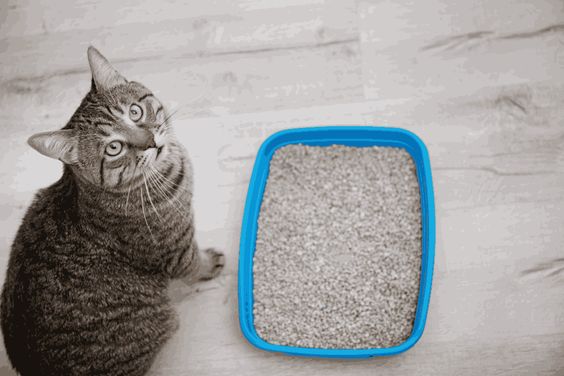Silver Lab Dog Breed: Size, Characteristics and Health Guide
The Silver Labrador Retriever has gained popularity in recent years. They have a strikingly beautiful silver-colored coat and disposition. Being one of the most fascinating breeds, they have been the center of much attention.
Their striking silver coat sets them apart from the more traditional dogs and their counterparts. However, they also come with their own set of characteristics, health concerns, and controversies.
In this blog, we will explore everything about the Silver Labrador Retriever, from their size and characteristics to their health considerations, personality, and pricing. Whether you are considering adopting a silver lab and bringing it into your family or just curious about these beautiful dogs, read this guide.
Size and Characteristics of Silver Lab Dog

The Silver Lab is a special and unique breed of dog known for its distinct silver-colored coat. Let us explore the size, appearance, and key characteristics of the silver lab dog breed.
Size
Silver Labradors are medium to large-sized dogs. They typically stand around 21.5 to 24.5 inches (55 to 62 cm) tall at the shoulder. Females are generally smaller than males. The male weighs around 55 to 80 pounds in their full maturity, and the female weighs a little less, which is 45 to 70 pounds.
Characteristics
Silver Lab dogs have some unique characteristics. Let us check out the unique characteristics.
1. Coat Color – The most distinguishing characteristic of a silver lab is its coat color, which appears as a silver or grayish blue. The color of their fur makes these dogs stand out the most. The coat can vary in shade, ranging from a lighter silver-grat to a darker charcoal gray.
2. Temperament – Like all Labradors, silver Labs have a friendly and affectionate nature. They are typically family-friendly dogs, often described as loyal and sociable. They are also intelligent and trainable. These characteristics make them suitable for various roles. This includes family pets, hunting companions, and service dogs. They make great family pets because they are good with kids and everyone in the household.
3. Energy Level – These dogs are very energetic. They require regular exercise and mental stimulation to stay happy and healthy. Daily walks, playtime, and activities such as fetch are essential to keep them physically and mentally engaged, which is also important for their well-being. They have lots of enthusiasm. So, if you have a Silver Lab, be ready to keep them active and entertained to ensure they stay happy and healthy.
4. Intelligence – Silver Labs are highly intelligent dogs. They excel in obedience training and are often used as working dogs in various roles. Such as search and rescue, helping to find missing people, assistance for aiding individuals with disabilities, and therapy work for bringing joy and comfort to those in need. Their adaptability and willingness to work make them versatile companions. So, Silver Labs are not just great pets; they can also be heroes in various ways.
5. Shedding – Silver Labs have a short, dense double coat that sheds all year round. Regular brushing can help manage shedding and keep their coat healthy. Brushing not only keeps their fur healthy but also helps to manage shedding.
6. Lifespan – The average lifespan of a SIlver Lab is typically around 10 to 12 years when well cared for. Proper nutrition, regular exercise, and routine veterinary care are essential for longevity and well-being. By doing these things, you can help ensure your Silver Lab lives a happy and long life as a beloved family member.
The silver labs are not only beautiful but also make a wonderful companion for families and individuals alike. Their loyalty, intelligence, and affectionate nature make them a cherished member of many households.
Health Guide for a Silver Lab Dog
Here are some key components of a comprehensive health guide for a Silver Lab dog:
1. Common Health Issues

Like all dog breeds, Silver Labradors are prone to certain health problems. Some of the most common health issues in SIlver Labs include:
- They have a hereditary health issue known as hip and elbow dysplasia. This condition is where the hip or elbow joint doesn’t develop correctly, leading to pain and mobility issues.
- Labradors can suffer from various eye conditions, including cataracts and progressive retinal atrophy (PRA).
- Labradors have a hearty appetite, and without proper diet and exercise, they can become overweight, leading to various health problems.
- Their floppy ears can trap moisture and become breeding grounds for bacteria, leading to ear infections if not properly maintained.
2. Regular Vet Checkups
To ensure the well-being of your Silver Lab’s health, it is crucial to schedule regular vet checkups. Your veterinarian can help you develop a preventative care plan and catch any health issues early.
3. Diet and Nutrition
Proper nutrition is essential for your Silver Lab’s health. Feed them a balanced diet and monitor their weight to prevent obesity. Consult with your vet for specific dietary recommendations.
4. Exercise
As mentioned earlier, silver Labs are energetic dogs that need daily exercise. Regular physical activity not only keeps them fit but also stimulates their mind. Also, prioritize mental well-being by engaging them in enjoyable and relaxing activities.
5. Sleep
Prioritize 7-9 hours of quality sleep each night by maintaining a consistent sleep schedule and creating a comfortable sleep environment.
6. Vaccinations
Stay up to date with recommended vaccinations to protect against preventable diseases. Stay informed about any health-related issues with healthcare professionals.
Maintaining the well-being and health of your Silver Lab dog is essential for ensuring a happy, healthy, and fulfilling life together and preventing risks.
Silver Labrador Pros & Cons: What to Consider Before Adopting

If you are considering adopting a Silver Labrador Retriever, it is important to know the pros and cons to ensure this breed is the right fit for your lifestyle and preferences.
Here are some factors to consider:
Pros
- Loyal and Affectionate– Silver Labradors are famous for their loyalty and affection toward their owners. They often form strong bonds with their families and are great companions.
- Intelligent and Trainable– Labrador Retrievers, including Silver Labs, are highly intelligent and trainable. They excel in obedience training and can learn various commands and tricks. Their high intelligence and eagerness to please make training relatively easy.
- Friendly and Sociable– These dogs tend to be friendly and pleasant, making them great additions to families with children and also the other pets. They are excellent family dogs, including those with children and other pets.
- Versatile– Silver Lab dogs can excel in various roles. Their adaptability makes them suitable for a variety of lifestyles.
- Energetic– Silver Labrador Retrievers are up for the challenge if you enjoy an active lifestyle. They can be an ideal exercise partner. They have plenty of energy and love to engage in physical activities like running, playing, and many more.
Cons
- Exercise Needs- Silver Labs require a significant amount of exercise and mental stimulation. If their exercise needs are unmet, they may become bored and exhibit destructive behaviors.
- Shedding- Labradors, including Silver Labs, shed year-round. Regular grooming, brushing, and vacuuming may be necessary to manage the shedding.
- Size– Silver Labs are medium to large-sized dogs. This means they need adequate space to move around comfortably. They may not be suitable for small apartments or have limited outdoor access.
- Health Concerns- Labradors are prone to certain health issues like hip and elbow dysplasia, obesity, etc. It is essential to provide proper healthcare and monitor their weight.
- Dietary Needs- Silver Labrador Retrievers may be prone to obesity, so it is crucial to monitor their diet carefully and avoid overfeeding.
Discussing the decision to bring a Silver Labrador Retriever into your home with all family members is important to ensure everyone is on board and understands the responsibilities. Be aware of any local laws and regulations regarding dog ownership, including licensing and breed-specific restrictions.
What Is the Silver Lab Puppy Personality Like?
The personality of a Silver Lab puppy is often similar to that of a Lab or Retriever puppy. Coat color typically doesn’t significantly influence a dog’s temperament. Here are some common personality traits you can expect from Silver Lab puppies:
1. Friendly and Sociable
Silver Lab puppies are usually known for their friendly and pleasant nature. They tend to be outgoing and enjoy interacting with people and other dogs. They often make great family pets because of their friendly nature.
2. Loyal and Affectionate

Labrador Retrievers, including Silver Labrador Retriever puppies, are loyal and affectionate towards their owners. They form strong bonds with their families, making them excellent companions. They love to be cuddled and will quickly bond with their caregivers.
3. Intelligent and Trainable
Silver Lab puppies are highly intelligent and quick learners. They respond well to training and are eager to learn new commands and tasks. Early socialization and training are essential to ensure they grow into well-behaved adults.
4. Energetic and Playful

Like all other Labs, Silver Labs are typically quite energetic, especially when they are young. Silver Lab puppies love to engage in games and different physical activities. They also have a natural liking for water. They often enjoy swimming and playing in the water. So, if you have access to a pool, they will likely love it.
5. Curious and Adventurous
Silver Labrador puppies are very curious and adventurous. They often explore their surroundings with enthusiasm. They are eager to explore the world around them. So, you must keep your home safe from the puppies as they may destroy things.
6. Alertness
Silver Lab retriever puppy has a keen sense of alertness. They may make good watchdogs. As they will often alert you to any unusual sounds or visitors.
Providing a loving, structured, and stimulating environment is essential to ensure a Silver Lab retriever puppy grows into a well-rounded and happy adult dog. It is essential to spend time getting to know and nurturing your Silver Lab Retriever puppy.
Facts About Silver Lab Puppies: Controversy & Price
- These pups are often called “chocolate labs” with a twist- a special gene that gives their fur a silver-gray look. But they are not waterproof. Their double-layered coat keeps them cozy even in water, be it freezing water.
- Apart from their color, they are basically just like regular retrievers. They have the same energy, attitude, and personality.
- Some breeders think of them as a way to make money because people really like their special colors and their personalities and are willing to pay a lot for them.
- But one of the major factors is that fancy dog clubs like the American Kennel Club (AKC) do not officially consider them a pure breed.
- To make more dogs with this silver color, some breeders sometimes mate their dogs that are closely related to each other.
The controversy surrounding Silver Labs primarily stems from the debate over their coat color. Traditional Labrador Retriever breed standards recognize black, yellow, and chocolate coats but not silver. This has led some to argue that Silver Labs are not a true Labrador variation. Before adopting a Silver Lab retriever puppy, consider the controversy and how it might impact your choice.
The price of a Silver Lab retriever puppy can vary widely. Reputable breeders who prioritize the health and well-being of their dogs may charge more. On average, you can expect to pay anywhere from $800 to $2500 for a Silver Lab puppy.
Most Common Silver Lab Puppies Health Issues
Silver Lab retriever Puppies are mostly known for their striking coat color. They are beloved family pets and also have a playful and affectionate nature. While these puppies are cherished for their charming nature and personalities, it is essential for the Silver Lab retriever puppy owner to be aware of certain health issues that affect these adorable creatures.
Just like any other dog breed, Silver Labs can encounter various health challenges during their lifetime, and understanding these potential issues. It is crucial to provide them with the best care and ensure a long and happy life.
Let us check the most common Silver Lab Puppies health issues
1. Joint Issues
The Silver Labrador Retriever puppies tend to face issues related to elbow and dysplasia. These conditions happen when the hip or elbow joints do not develop properly, leading to discomfort and difficulty in movement. Early signs can include limping or a reluctance to exercise. Regular exercise, a healthy diet, and joint supplements can help to manage these issues.
2. Skin Problems
Silver Labs can have sensitive skin that may be prone to allergies and irritations. Common skin issues include itching, redness, and hot spots. It is important to provide proper grooming, such as regular baths with prescribed shampoo, to keep their skin healthy. Consulting with a veterinarian will help identify and manage skin allergies.
3. Ear Infections
Labradors have floppy ears that can trap moisture, making them susceptible to ear infections. Frequent ear cleaning and keeping their ears dry can help prevent these infections. If you thoroughly notice your Silver Lab retriever puppy scratching their ears or shaking their head excessively, it is essential to consult a vet to treat any ear problems properly.
4. Eye Conditions
Some Silver Labs may develop eye issues, including cataracts or progressive retinal atrophy (PRA). Cataracts can cause cloudy or blurred vision, while PRA is a degenerative condition that can lead to blindness. It is necessary for regular eye checkups. Regular eye checkups with an ophthalmologist in a vet can help monitor and manage these conditions if they occur.
5. Obesity
Silver Labs can easily gain weight if diet and exercise are not carefully monitored. Obesity can lead to various health issues. Feeding a balanced diet, controlling portion size, and providing regular exercise is crucial to maintaining a healthy weight.
6. Heart Problems
Labs are prone to heart diseases, including dilated cardiomyopathy. This condition can lead to an enlarged heart and further lead to heart failure if left unaddressed. Regular veterinary check-ups can help monitor your Silver Lab’s heart health, and medication may be prescribed if any issues are detected.
7. Gastric Issues
Bloat, which is also known as gastric torsion. It is also called a twisted stomach. It is a life-threatening condition and can cause a significant risk to the labs. It occurs when the stomach twists, trapping gas and preventing normal digestion. Symptoms include restlessness, excess salivation, and a swollen abdomen. Immediate veterinary intervention is necessary if bloat is suspected.
8. Dental Problems
Like other dogs, Silver Labs can develop dental issues like gum diseases and tooth decay if their oral hygiene is neglected. Regular brushing and dental checkups can help prevent these problems, ensuring your puppy maintains healthy teeth and gums throughout their life.
Remember that detecting early and proactive care is essential in managing and preventing these health issues in Silver Labrador retriever puppies. Regular visits to the veterinarian and attentive care at home can help ensure a happy and healthy life for your furry companion.
Conclusion
Silver Labs are beautiful dogs with unique coat colors and wonderful personalities. In simple words, Silver Labrador Retrievers are special dogs. But before getting one, you should know about their size, how they act, and health issues.
It is important to take good care of them, visit the vet, and feed them right. They can be your great friends if you love playing and cuddling. But remember, they need exercise and might shed a bit. So, if you decide to have a Silver Lab Retriever puppy, give them love and care; they will be your loyal friends for a long time.
Remember to prioritize their well-being and provide the love and care they deserve.







